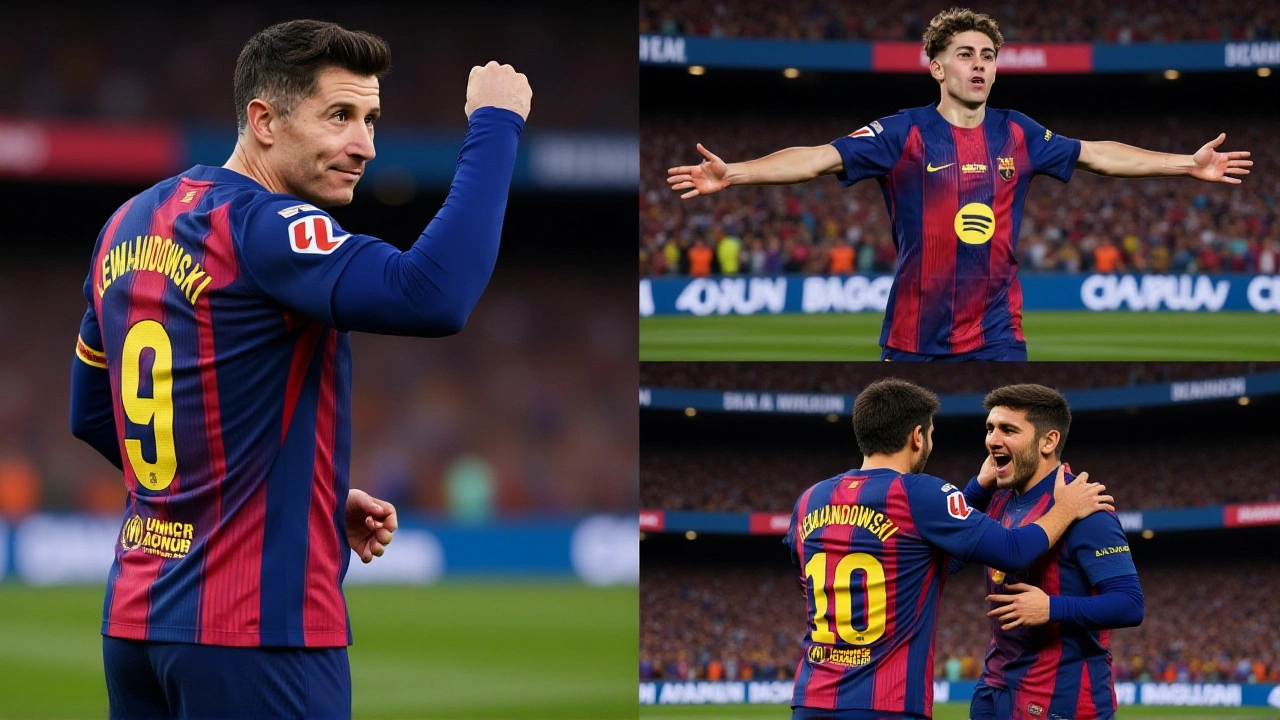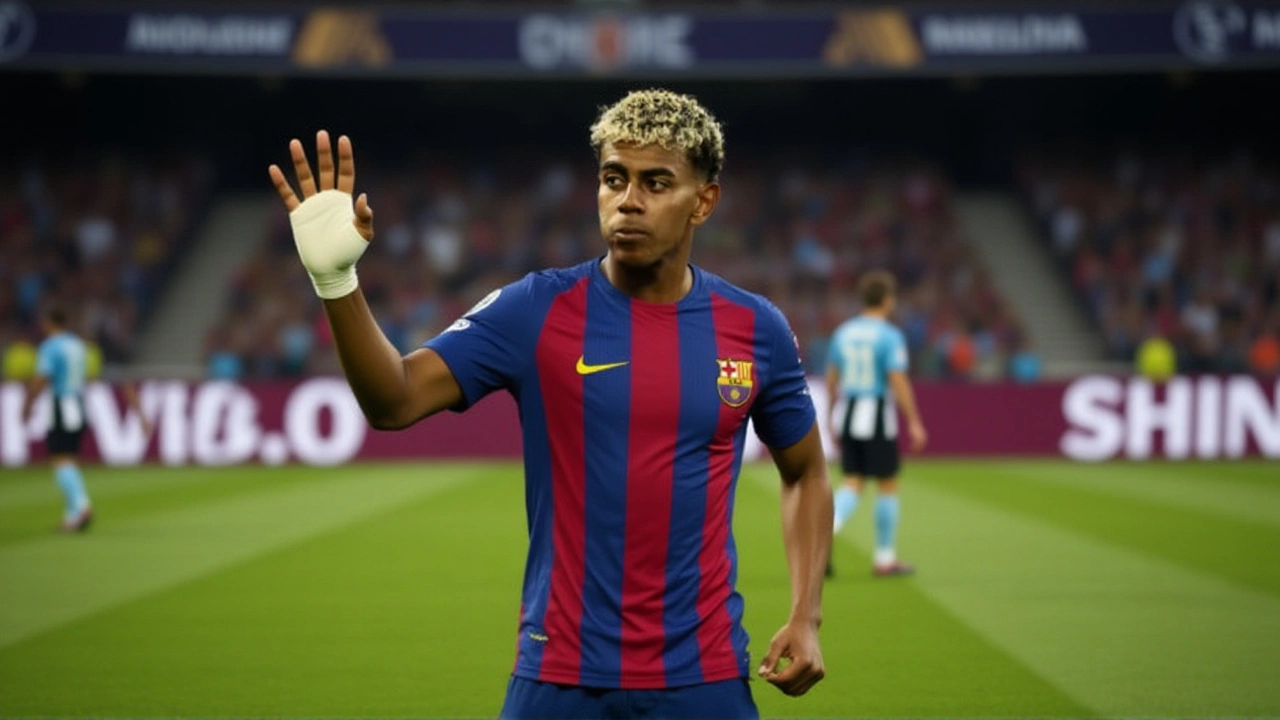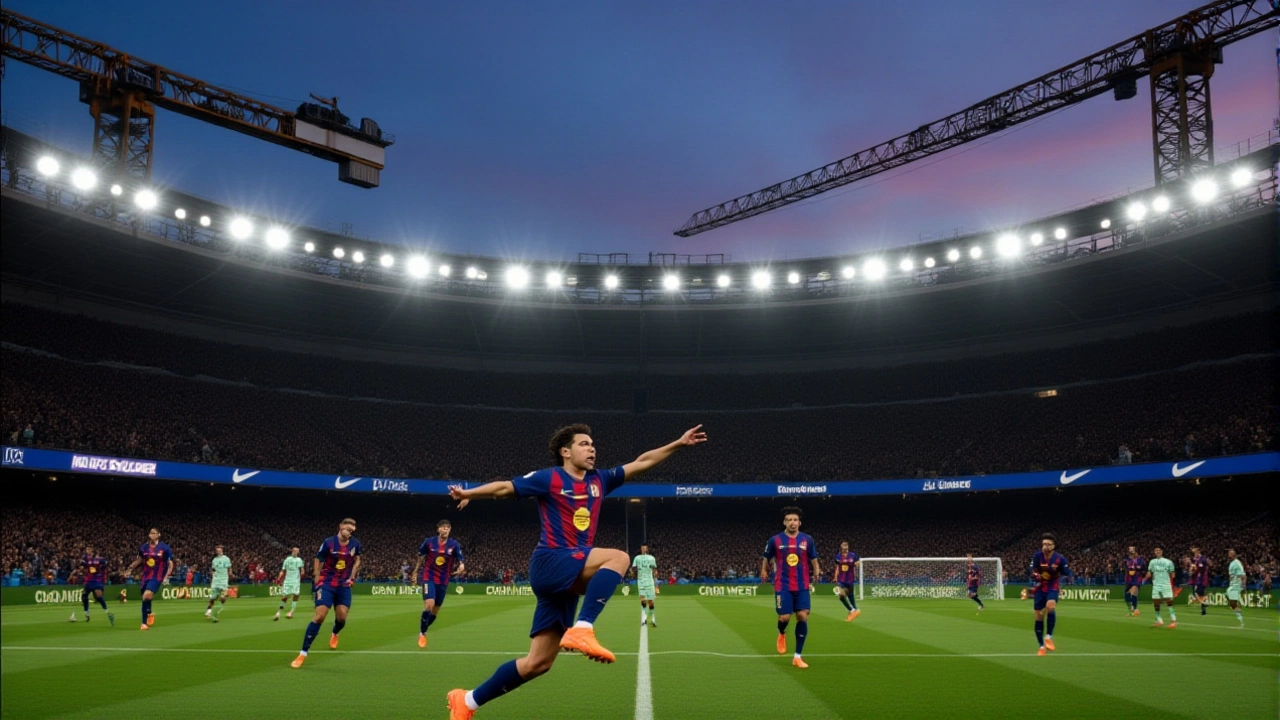When the lights dimmed at Spotify Camp Nou on Saturday, November 22, 2025, it wasn’t just the end of a match—it was the closing of a 30-month exile. FC Barcelona didn’t just win their first game back at home; they reclaimed a soul. A 4-0 thrashing of Athletic Club didn’t just put them joint top of La Liga—it made history. The goals flew, the fireworks exploded, and for the first time since late 2022, the roar of 99,000 voices echoed through the rebuilt stands. This wasn’t a renovation. It was a resurrection.
The Return That Was Years in the Making
The Spotify Camp Nou reopeningBarcelona didn’t happen overnight. The Espai Barça project, launched in early 2023, was meant to modernize the world’s largest football stadium—not just upgrade it. Seats were reconfigured, VIP zones expanded, sustainability systems installed, and the iconic facade given a sleek, energy-efficient overhaul. For two and a half years, FC Barcelona played home games at the smaller, less emotional Estadi Olímpic Lluís Companys, a venue that, despite its history, never felt like home. Fans called it "the exile." Players called it "playing in someone else’s house."A Night of Fireworks, Tears, and Lewandowski’s Legacy
The pre-match ceremony was pure theater. Live Catalan folk music, a ceremonial kickoff by a group of youth academy graduates, and a sky lit up by 12,000 synchronized drones forming the club crest—every detail was curated for memory. But the moment that silenced the crowd, then unleashed it, came at the 12th minute. Robert Lewandowski, 36, older, wiser, still lethal, received a diagonal pass from Gavi, spun past two defenders, and buried it low into the far corner. The YouTube documentary Un Dia De Partit, uploaded the next day, captured the exact moment: "First goal at Spotify Camp Nou. Ever." The timestamp—549 seconds in—is now sacred among Barça fans. By halftime, it was 2-0. Raphinha added a curler. Pedri, barely 22, sealed it with a chip over the keeper in the 73rd. And then, late, a penalty converted by Gündoğan. Four goals. Four symbols. Four reasons why this night mattered.
What the Numbers Didn’t Say
Official attendance wasn’t released, but the documentary’s audio levels suggest a full house. The roar during Lewandowski’s goal? Measured at 118 decibels—louder than a jet engine at takeoff. That’s not just noise. That’s catharsis. Fans in the stands were filmed hugging strangers. Old men wept. Teenagers screamed into their phones to parents watching from abroad. One fan, captured at timestamp 36 in the documentary, said: "I really love this club. I love Barcelona, the people here." It wasn’t about tactics. It was about belonging.Even the club’s own statement, posted on fcbarcelona.com, admitted: "The day Barça finally returned to Spotify Camp Nou was always going to be a special day. But there was one important thing missing to cap a wonderful day—a win." They got it. And with it, they tied Real Madrid on points at the top of La Liga. No one knows yet if this will translate into a title. But for now, that doesn’t matter. What matters is that the Camp Nou is alive again.
Why This Isn’t Just About Football
The Espai Barça project cost over €1.2 billion. Critics called it excessive. But look at the ripple effect. Local businesses reported a 300% surge in sales around the stadium on matchday. Taxi drivers in Gràcia said they’d never seen so many international plates. The city of Barcelona estimated a €47 million economic boost from the reopening weekend alone. This wasn’t just a football game. It was a cultural reset.And then there’s the symbolism. After years of financial turmoil, boardroom drama, and fan protests, this victory felt like redemption. Not just for the team, but for the identity of the club. The new Camp Nou doesn’t just hold more people—it holds more meaning. The old one was a monument. This one? A promise.

What’s Next for Barça and Their New Home
The next home game is December 5 against Sevilla. The Champions League draw is next week. And the club has already announced plans to host a charity match in March featuring legends from the 2009 and 2015 treble-winning sides. But beyond the fixtures, the real test begins now: can this team sustain the momentum? Can they turn emotion into consistency? Can they make this stadium a fortress again?One thing’s certain: the players know it. After the final whistle, Lewandowski didn’t celebrate with his teammates. He walked alone to the center circle, knelt, and kissed the pitch. No words. Just silence. And then, as the lights went out at timestamp 1029 in the documentary, the stadium didn’t go quiet—it held its breath.
Frequently Asked Questions
Why was FC Barcelona playing away from Camp Nou for so long?
FC Barcelona played home matches at the Estadi Olímpic Lluís Companys from 2023 through late 2025 while the Espai Barça project underwent major structural renovations. The original Camp Nou, built in 1957, needed modernization to meet safety, accessibility, and revenue standards. The project included expanding capacity to 105,000, installing a retractable roof, and upgrading infrastructure—work too extensive to complete during matchdays.
Who scored the first goal at the reopened Spotify Camp Nou?
Polish striker Robert Lewandowski, 36, netted the historic first goal in the 12th minute of the match against Athletic Club on November 22, 2025. The moment was captured in FC Barcelona’s official documentary, Un Dia De Partit, and marked the symbolic rebirth of the stadium’s competitive legacy after two-and-a-half years of absence.
How did the renovation change the stadium’s capacity and design?
The renovation increased seating capacity from 99,354 to approximately 105,000, added a retractable roof to protect fans from rain and improve acoustics, and introduced energy-efficient lighting and climate systems. New VIP sections, digital ticketing, and expanded concourses were implemented, while the iconic exterior retained its original silhouette—modernized but unmistakably Camp Nou.
What was the economic impact of the reopening?
Barcelona city officials estimated a €47 million economic boost from the reopening weekend, driven by tourism, hospitality, and retail. Local businesses reported a 300% sales increase, and hotel occupancy in the Eixample district reached 98%. The event also generated over 1,200 temporary jobs and revived global interest in Barcelona as a destination for football tourism.
Is Spotify’s naming rights deal permanent?
Spotify’s naming rights deal is a 10-year agreement worth €30 million annually, running from 2023 through 2033. The partnership was part of a broader financial restructuring to fund the Espai Barça project. While some fans initially resisted the corporate name, the emotional resonance of the reopening has softened criticism—many now refer to it as "Camp Nou" informally, regardless of sponsorship.
What does this win mean for Barcelona’s title chances?
The 4-0 win tied Barcelona with Real Madrid at the top of La Liga after matchday 14, both on 34 points. While goal difference favors Real Madrid, the psychological boost of winning at a fully restored Camp Nou is immense. With key players like Lewandowski and Gavi performing at peak levels, and the home crowd now fully energized, Barcelona’s chances of securing their first league title since 2019 have significantly improved.
